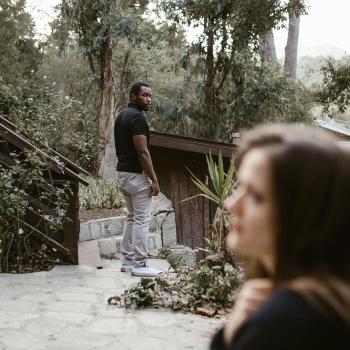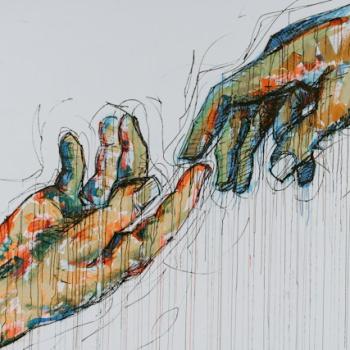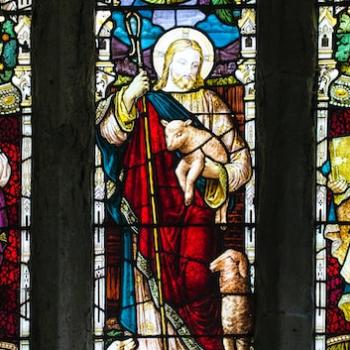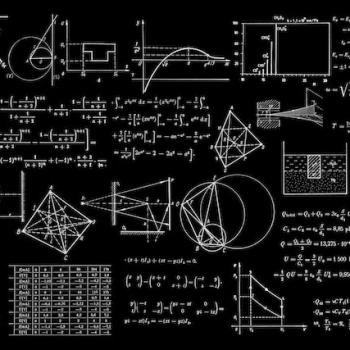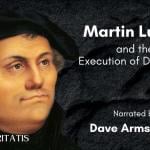The complex doctrine of the Holy Trinity can be described in many ways. Perhaps the best is … “It’s complicated.”

Having been married for nearly 29 years, I’ve never been on a dating app or used any own social media to meet people. But I know of many happy couples who did meet that way, so I assume that if I were young and single, I’d probably also entrust the algorithms of relationships to produce reasonable dating options worthy of a right swipe.
Especially intriguing to me are the choices social media provides for identifying “relationship status.” Sure, there are the usual categories – single, married, engaged, widowed, divorced – but these generic, rather traditional identifiers alone fail to capture the varied experience of human connection today. Other common options available are “in a civil union” and “in a domestic partnership.”
It’s Complicated
Other, more purposefully vague descriptors include “taken” and “in a relationship.” And you’ll even find some wild possibilities like “open relationship” and “swinger!” But my favorite of all is probably also the most accurate: “it’s complicated.”
This Sunday celebrates the most “it’s complicated” of all relationships: The Feast of the Holy Trinity. Surely, the most complex relationship algorithm of all must be the one that attempts to describe the most profound reality in all of existence – the concept of one God in three persons.
But that’s what you get when you put a bunch of people around the boardroom table, debate the finer points of language and meaning, and then send out the resulting memo company-wide which all but ensures it will be misunderstood … if read at all. In other words, that’s what you get when Church councils attempt to weed out heresy by firming up doctrine.
Why Trinity?
On the one hand, there’s a strange sort of logic at its core. We humans tend to create God in our own image because … what else can we do? Being “people” ourselves, we can only understand things as “persons.” We personify God as a kind of super-person. We even call God “he” and speak of his thoughts, feelings, words, and actions as though God is pretty much like us, just lots better: all-knowing, all-powerful, unlimited by time, space, or even traffic.
The Trinity is not explicitly mentioned in the New Testament although some scholars point to the poetic language in John’s gospel as a precursor. Later though, in the early centuries of Christianity, the concept is suggested in the writings of Clement of Rome, Ignatius of Antioch, Justin Martyr, Theophilus of Antioch, and Tertullian.
But it wasn’t until the Council of Nicaea in 325 that the Holy Trinity was formulated into official Church doctrine. As a way of countering false notions about the “persons” of the Trinity, Church leaders created the Nicene Creed emphasizing the word “homoousios,” meaning “one substance,” to describe the nature of God the Father and Jesus the Son. But Nicaea had little to say about the Holy Spirit. The Council of Constantinople in 381 later suggested that the Holy Spirit was “consubstantial” with the Father and the Son.
Say What?
One God in three persons? Consubstantial? Many Christians today admit that they don’t really understand the doctrine of the Trinity, and who can blame them? Couldn’t the memo have come with a glossary? Or pictures? Or even just real-life words that make sense?
For centuries, people have tried to interpret the doctrine in more concrete terms to make it easier to understand. One laudable attempt goes like this. I am Mary Ann, but I’m also a wife, mother, sister, teacher, and writer. I never stop being Mary Ann regardless of which role in which you encounter me. But although the simplicity of this understanding is tempting, it doesn’t quite hit the mark because the elements of the Trinity are distinct “persons,” not just roles or functions.
Father Richard Rohr suggests that the best way to understand such a complex reality is to think of the Trinity as a relationship itself. Maybe it’s helpful to pay less attention to the specific nouns involved – father, son, spirit – and think of the concept as a whole more like a verb. The doctrine of the Trinity may well be the corporate-speak, confusing-memo version of what we might otherwise think of as the dynamic act of connection itself.
Trinity? Yes, But…
I think that explanation gets us closer to the truth, but for me, there’s still a missing piece. We can say that “God is relationship” just like we can say “God is love.” Both are true but incomplete. I like how Eckart Tolle describes it in A New Earth: “So love is the recognition of oneness in a world of duality. This is the birth of God into the world of form.” In other words, God is “larger” than love-in-relationship, but love-in-relationship is the closest we can get to understanding that which cannot be understood.
There may be as many “relationship status” designations as there are relationships themselves. But regardless of what we call them, being in true relationship – with God, with others, with the earth and all life that springs from it – is how we encounter the very “substance” of God. In many ways, “it’s complicated.” But it’s not incomprehensible. Simply put, God is relationship … and so much more. So then, real relationship is our highest, most sacred calling. To love is to participate in the divine dance here on earth. That’s an algorithm that works for me.





